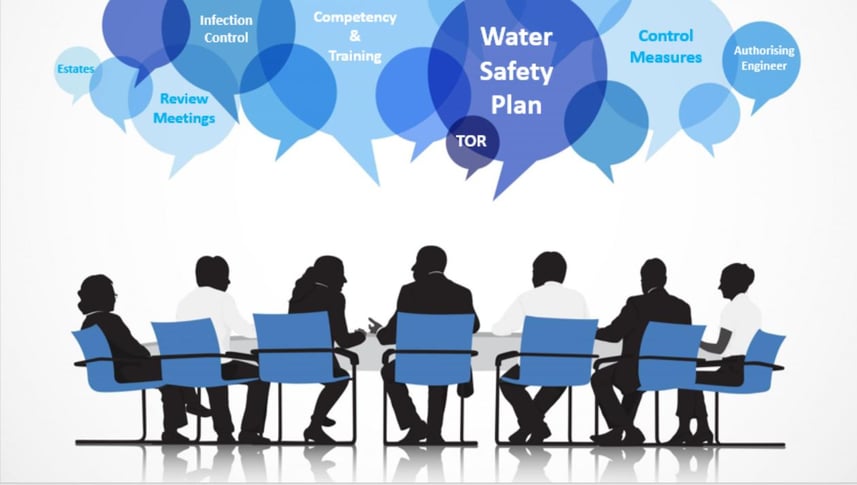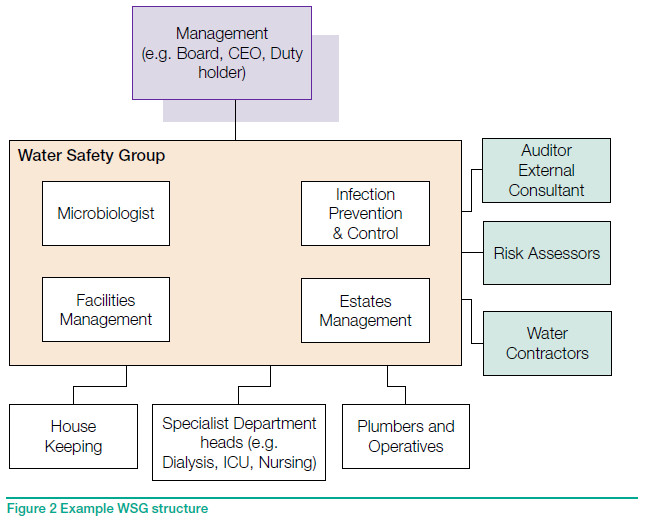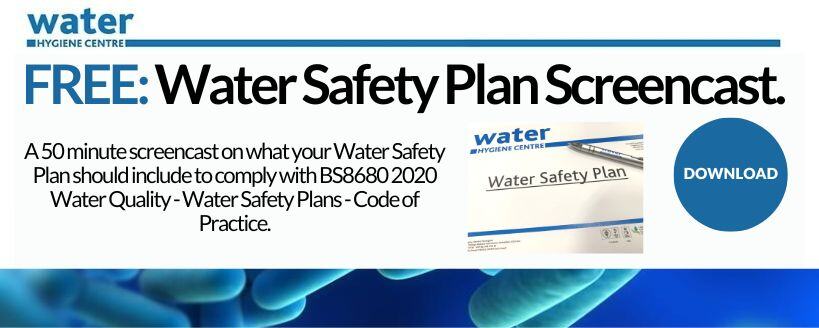This group, the ‘water safety group’ (WSG), isn’t a new idea! The concept of the WSG was first described in the Department of Health’s HTM04-01 2012 addendum and the subsequent revision of the HTM04-01 in 2016 provided updated guidance on the remit and aims of the group.
Water Safety Group Guidance Documents
“The Health and Social Care Act 2008: Code of Practice on the Prevention and control of Infections and related guidance” requires a Water Safety Group [WSG] and Water Safety Plan [WSP] to be in place to manage and monitor the prevention and control of infections effectively.
Therefore, the duty holder should appoint a WSG to deliver on the development, implementation, and continuous review of a WSP. In turn, the WSG should have clear lines of accountability (communication pathways) to the CEO and the Board.
HTM04-01 Safe Water in healthcare premises defines the WSG as
“a multidisciplinary group formed to undertake the commissioning and development and ongoing management of the water safety plan (WSP). It also advises on the remedial action required when water systems or outlets are found to be contaminated and the risk to susceptible patients is increased”.
Who should be part of the Water Safety Group?
The makeup of this ‘multidisciplinary’ group should include those who are fully conversant with design principles, the operational requirements of water systems, and the cause and effect of waterborne hazards.
The Water Safety Group members are brought together to share responsibility and take collective ownership for ensuring that all foreseeable water-related risks are identified and assessed, that appropriate control measures and monitoring strategies are implemented and that robust incident protocols are developed.
HTM04-01 Part B states
"This would normally involve representation from estates (operations and projects), infection control, medical microbiology, nursing, augmented care, housekeeping/support services, an Authorising Engineer/independent adviser, medical technical officers, specialist users of water (such as renal units and departments offering aquatic therapy), and sterile services departments (SSDs)”.
The organisation needs to demonstrate that suitable governance, competence, and accountability arrangements are in place to deliver safe water to the premises. Keeping this in mind, the WSG features as an assurance group, and shouldn’t be distracted with ‘nuts and bolts’ of an operational aspect.
Of course, these matters are of importance, but the detail can be dealt with through a sub-group i.e. an Operational / Project Water Group. Thinking about the members of the WSG and the remit of the group, providing assurance is paramount.
To ensure the remit of the WSG is achieved the meetings should be chaired by an individual who has appropriate management responsibility, experience, competence, and knowledge. This ‘chairperson’ will vary between organisations according to the post held and structure of the organisation this person should be identified in the management policy along with all others involved in the management of water safety within the organisation.
What is the remit of a Water Safety Group?

The current HTM04-01 states that the second aim of the guidance is ‘outlining the remit of the WSG and how this relates to the provision of safe water…’. HTM04-01, Part B, Chapter 6 details the remit for a WSG
The remit covers 14 separate issues, ranging from Legionella training, competency, Legionella risk assessment, water safety plan, surveillance data, and maintenance and monitoring protocols.
Having a defined remit for a WSG, allows a group to establish a robust ‘terms-of-reference’. Once the Group’s terms-of-reference have been agreed upon, using the HTM04-01 remit, then regular WSG meetings can have a defined agenda.
The agenda items based on the terms of reference will ensure the WSG is delivering on the status of compliance. Thereby, given the reporting lines for the WSG, an informed position on the status of water safety for the organisation can be detailed at the Board level.
In summary, a WSG needs defined terms-of-reference. It makes sense for this to be based on the remit defined in HTM04-01 Part B. The agenda for group meetings need to show how the group is delivering on their terms-of-reference. As a result, the WSG will be an assurance group that is compliance-based with the evidence available to back up all high-level reports
Further reading> Your Water Safety Group's Training Program Explained
Feel free to reach out if you have any questions about this blog or if you would like to consult with one of our experts for further advice on water hygiene.
Editors Note: The information provided in this blog is correct at date of original publication - October 2018. (Revised June 2023)
© Water Hygiene Centre 2023










